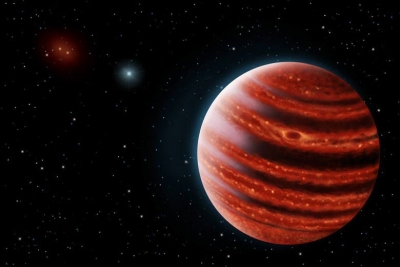
The exoplanet search and study group at the Ahmedabad-based Physical Research Laboratory (PRL) announced the discovery of a new exoplanet orbiting too close to an ageing star located 725 light years away from Earth. The planet, named TOI 1789b or HD 82139b, is close to the host star at a distance of 0.05 AU and orbits it in just 3.2 days. Because of the proximity of the planet to its host star, its surface temperature reaches up to 2000 K.
The star, known as HD 82139, has a mass of 1.5 times that of Sun. This discovery was made using PRL Advanced Radial-velocity Abu-sky Search (PARAS) optical fiber-fed spectrograph, the first of its kind in India, on the 1.2 metre telescope of PRL at its Mt. Abu Observatory. The exoplanet’s mass was found to be 70% and size about 1.4 times that of the Jupiter. The discovery team led by Prof Abhijit Chakraborty, included students and team members, and international collaborators from Europe and the U.S.
The new discovery comes just weeks after Indian astronomers found a new method to understand the atmosphere of a planet beyond our solar system. Astronomers from the Indian Institute of Astrophysics designed a method to study the atmosphere of these planets by observing polarisation signatures or variations in the scattering intensity of light using ground-based radars and observatories.
Astronomers have been scouring through the sky looking for planets that could show signs of habitability. Researchers have talked about finding signs of life on some of these exoplanets in the coming decade. The most promising among them is the Hycean worlds, which are classified as exoplanets beyond the solar system which have densities between those of rocky super-Earths and more extended mini-Neptunes.
The habitable zone of these exoplanets revolves around Sun-like stars, which are more numerous and observable than Earth-like planets.
Credit : India Today
Picture Credit : Google




